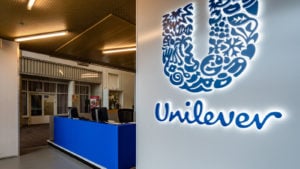With interest rates soaring around the globe, many investors have begun to hunt for undervalued dividend stocks to protect their portfolios.
Dividend stocks are those that take some percentage of their income and pass it on to shareholders. It’s one of the many avenues making up shareholder returns. But while a juicy dividend yield can sound extremely enticing, watch out for a few pitfalls as you go searching for income stocks.
The first is whether the yield is reasonable. A company’s dividend yield is the dividend per share compared against the price per share. An ultra high dividend yield can mean one of two things. Either the dividend per share is quite high, or the price per share is quite low. When a dividend yield is extremely elevated, it tends to be the result of a depressed share price.
If the share price is relatively steady but the dividend yield is off the charts, that’s not necessarily a sign that you’ve found the creme-de-la-creme of undervalued dividend stocks either. When companies give part of their income back to shareholders, its typically because the rate of return they expect to achieve with that cash is below the amount shareholders might be able to fetch.
This is the reason many of the market’s most popular dividend stocks are in mature, established companies.
Unilever (UL)

Source: BYonkruud / Shutterstock.com
Unilever (NYSE:UL) is not only a good income play, it’s also somewhat of a value play given its depressed share price lately.
It’s been a hard few years for consumer goods maker Unilever. Shareholder pressure coupled with a failed takeover effort tanked investor sentiment. But with a new CEO at the helm, Unilever could be ready for a new lease on life. With a dividend yield just shy of 4%, shareholders should come along for the ride.
Unliever owns some of the world’s most recognizable brands, from Ben & Jerry’s to Dove. This brand power allows Unilever to charge a premium for its products, a valuable superpower in the current environment. UL has been working to protect margins by passing on rising input costs to consumers, a strategy that should keep cashflow healthy.
Consumers can stomach only a limited amount of price hikes, however. So management will be walking a tightrope as it continues offsetting cost pressures. Worries about volumes taking a hit are keeping the group’s share price depressed. However, if inflation is starting to ease as expected, now could be a good time to snap up UL shares.
British American Tobacco (BTI)

Source: DutchMen / Shutterstock.com
As the world’s second largest tobacco company, British American Tobacco (NYSE:BTI) has a strong position within the market. Lower-than-average valuations make many cigarette makers excellent picks among undervalued dividend shares.
The tobacco market will always be off-limits to socially conscious investors, so valuations in the sector have a ceiling. Admittedly, it’s a declining market. The group, like its peers, has been able to offset falling volumes with price increases which has kept revenue growth ticking over. Margins are also healthy, which has allowed the group to reward shareholders with a generous 10.5% dividend yield.
For future growth, British American Tobaccco has its hopes pinned on next generation products like heated tobacco and vapes. It’s been generally accepted that these forms of tobacco consumption are safer than traditional cigarettes, but given their newness, concerns remain regarding long-term impacts. These parts of the business are still in the early stages of growth and for now, loss-making.
While it’s important to acknowledge that tobacco use is declining, it’s also worth noting that it’s likely to disappear altogether. With that in mind an industry leader like British American Tobacco is worth considering if income is your priority.
McDonalds (MCD)

Source: Gargantiopa / Shutterstock
McDonalds (NYSE:MCD) has been around since 1940 and weathered several economic downturns. The group has also maintained a shareholder-friendly dividend policy, increasing payouts every year since the 1990’s.
McDonalds’ business model is an enviable cash cow, underpinning its reliable dividend payouts. Most of the restaurants are franchised, so that means the group isn’t responsible for running costs. This means cash conversion is high. Last year the group had $5.5bn in free cash flow swimming around, leaving plenty of space to reward shareholders with dividends and buybacks.
McDonald’s has been stung by rising prices just like everyone else. However, MCD has been able to protect margins. A forward-looking strategy is positioned to improve the their online presence and build out delivery and drive-thru options as well. All these positives come with a price tag, and McDonalds shares don’t come cheap.
Yet, the group still has more to deliver which should be supportive of earnings growth in the future. A strong share price is reflected in its yield of 2.2%, but the McDonalds is worth considering to round out an income portfolio.
On the date of publication, Marie Brodbeck held BTI. The opinions expressed in this article are those of the writer, subject to the InvestorPlace.com Publishing Guidelines.

